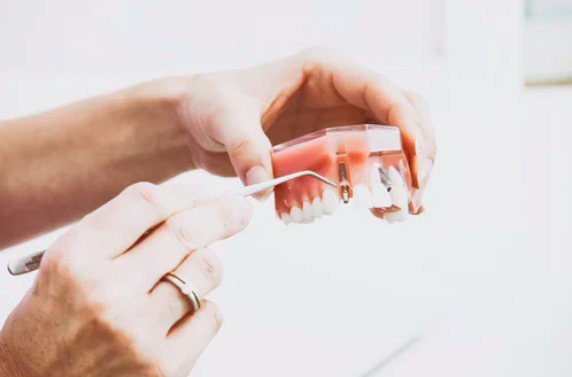A dental crown is a fitted replacement to cap your teeth in lieu of a natural surface, which might have been cracked, damaged or simply eroded overtime. This cap fully covers all of the tooth that sits above the gums, encasing it in a protective seal.
Who Needs a Dental Crown?
A dental crown might be fitted in the case of…
Protection: To provide a protective layer around a weak or decaying tooth. This can also protect a cracked tooth, keeping it together and avoiding replacing the entire tooth as a whole.
Restoration: A crown can restore a depleted, cracked or worn down tooth, encouraging it to heal back to full health over time.
Coverage: Dental crowns are commonly used to cover and support large fillings or sensitive areas within a tooth.
Support: Crowns can help to hold a dental bridge firmly in place.
Reshape or Recolour: Teeth can become misshapen or discoloured overtime, a crown is a perfect means of concealing this and protecting the tooth in the process.
Modification: Sometimes crowns are used to modify a cosmetic issue.
What are the Different Types of Dental Crown?
There are a few different types of dental crown on offer when you’re looking to get a cap fitted. These will include…
Stainless Steel
These are prefabricated caps that are filled over primary teeth on a temporary basis. This is usually used for children as a protective measure whilst adult teeth are forming. This will protect the tooth until a fully formed healthy adult tooth comes through.
Metal
Platinum or gold are commonly used to create strong and protective dental crowns. These materials are nice and tough, able to withstand biting, chewing and night grinding.
Porcelain Fused Metal
This is a great option for colour matching your dental crowns to blend seamlessly with the rest of your smile. These are the most realistic option for crowns however can chip and wear down overtime.
Resin
These crowns are the most cost effective option although they can be prone to fracturing and splitting over time so are not always the best long term choice.
Ceramic or Porcelain
A ceramic or porcelain crown is great if you want your cap to blend into your mouth very naturally, and they work amazingly for people who have metal or alloy allergies. These can be used for front and back teeth.
Acrylic
Acrylic crowns are the ideal temporary option. These are used as a temporary restorative technique whilst more permanent crowns are created at your dental practice.
What is the Process?
You will have to visit your dentist to have your teeth examined and prepared before a dental crown is going to be fit. If your issue is pressing, you might have a temporary acrylic crown fitted after your dentist has taken a mould of your teeth in preparation for a more permanent option. Speak to your dentist about the process at your next check up and clean if you are unsure of the ins and outs of getting a dental crown fitted.
How Long Do They Last?
This largely depends on the type of material that your dental professional allocates for you. Some options last longer than others, it’s largely considered that metal and resin hybrids are the most long lasting and common form of crown going, whilst pure resin or ceramic are not as durable.
Head to your dental professional to inquire about whether a cap is going to work for you and your smile! Both temporary and permanent dental crowns are an affordable and protective option for many individuals.

